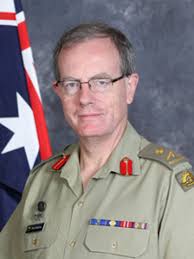PAUL MALEY The Australian – National Security Editor – June 1, 2020
A long-running inquiry into possible war crimes committed by Australian special forces in Afghanistan is unlikely to allege criminal wrongdoing by individual soldiers and will instead identify potential incidents requiring further investigation.

As the Inspector-General of the Australian Defence Force Maj-Gen Paul Brereton wraps up the four-year inquiry, The Australian has spoken to a number of senior barristers about the implications of the inquiry’s final report.
They say that contrary to much of the speculation, the IGADF is highly unlikely to make findings about criminal wrongdoing of individual soldiers.
Rather, the IGADF will outline what he believes are the likely actual circumstances around particular incidents and which might require criminal investigation.
“I can’t emphasise this enough, his job is a fact-finding exercise,’’ one senior barrister familiar with the process told The Australian.
The IGADF has begun issuing notices to special forces troops embroiled in the inquiry advising them that they have been named as “potential persons of interest’’.
Paul Willee QC, a former head of the Military Bar, said those notices were not in themselves evidence of wrongdoing, nor did they mean those receiving them would be the subject of a negative finding.
“These notices are not sent out willy nilly,’’ Mr Willee said. “But it is not any more than that.
“It is not an indication that any finding has been made other than it’s possible that you may be the subject of a finding.’’
The notices are understood to have been received by a number of former special forces troops, including witnesses to alleged incidents.
They set out any allegations made against a person and the nature of the evidence that suggests those allegations might be credible.
The person is then given a period of time, usually about 28 days, to respond.
In May 2016, the IGADF began an inquiry into possible war crimes following years of rumours about the behaviour of Australian troops in Afghanistan.
NSW Supreme Court judge and retired major general Paul Brereton was seconded by the IGADF to run the investigation.
The inquiry used royal commission-style powers to interview hundreds of witnesses about as many as 55 alleged war crimes.
One barrister said Diggers who received notices were “potentially in trouble’’.
“But I wouldn’t take it any further than that,’’ the barrister said.
“You’re being told, formally by legal notice, that there is the potential for a finding to be made against you and are invited to respond as to why such a finding should not be made against you.’’
Privately, Defence is bracing for what is expected to be a scathing report about widespread misconduct among the SASR and the Commandos and the likelihood it will lead to criminal prosecutions.
Because the IGADF is a coercive body, much of the evidence Justice Brereton obtains could be unusable, particularly if witnesses incriminate themselves.
However, information gathered about alleged wrongdoing of others could be used as “derivative’’ evidence.
That means it could not be used directly, but its existence could be disclosed to police, who would then have to obtain it directly from the witness.
Powered by WPeMatico
Recent Comments